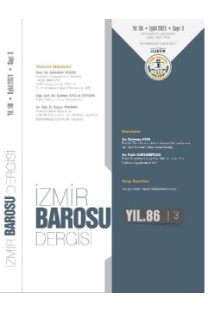Avrupa Birliği_ Türkiye Ortaklık Hukuku'nda Içtihat Değişimi
ABAD'ın 2013 yılında verdiği Demirkan Kararı, AB--Türkiye ortaklık hukukunda önemli bir kırılma noktası olmuştur. Kararda, bugüne kadar neredeyse aralıksız olarak başvurulan kıyas yöntemi reddedilmiş; ortaklık hukuku hizmet özgürlüğü kapsam alanı AB genel hukukunda yapılanın tersine dar yorumlanmıştır. Sonuç olarak, pasif hizmet kavramı ortaklık hukukuna sokulma-- mış ve serbest dolaşım haklarının hizmet alanlar tarafından değil; yalnızca hizmet verenlerce kullanılabileceğine hükmedilmiştir. Bu kararın diğer bir önemiyse, Ankara Anlaşması'nın eski içtihat-- lardan farklı olarak
Avrupa Birliği_ Türkiye Ortaklık Hukuku’nda Içtihat Değişimi
Demirkan decision of the Court of Justice of the European Union in 2013 has been breaking point in the interpretation of UE—Turkey Association Law. In this decision, simili method was denied by the Court of Justice Who made restrictive interpretation of the rationae personae scope of the freedom of service. Accordingly to this, the legal notion of “passive service” is excluded from the Law of Association and the Court underlined that the freedom of service could not be used by customers but only by active service providers. An another key point of this decision is that, in contrast of earlyer decisions, the Court of justice has interpretated Ankara Agreement as an agreement pursuing “solely economic purpose”. By doing so, the Court drew the limits of its extensive interpretation policy.
___
- ISSN: 1305-757X
- Yayın Aralığı: Yılda 3 Sayı
- Başlangıç: 1936
- Yayıncı: İzmir Baro Başkanlığı
